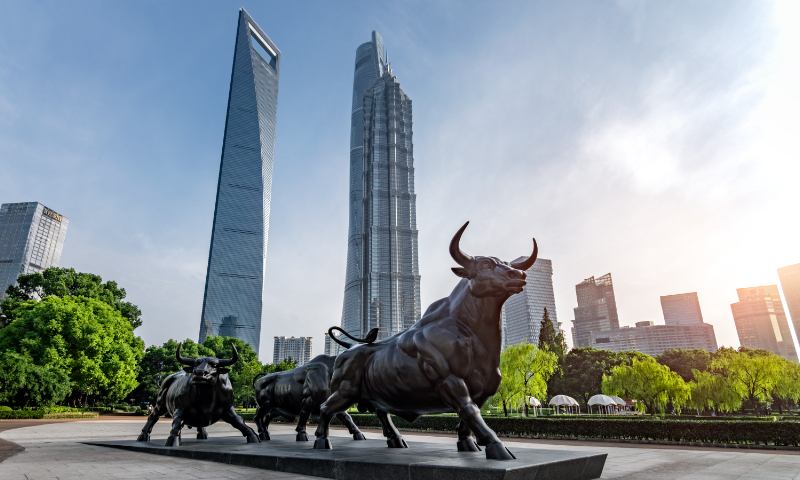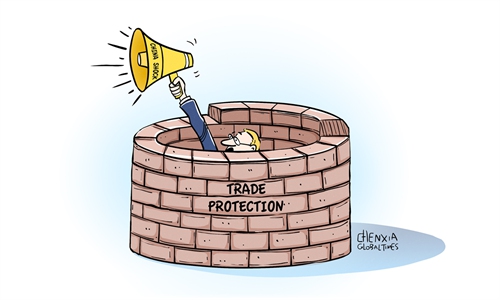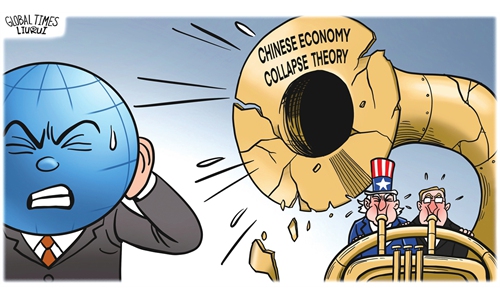China’s standing as ‘world’s factory’ difficult to replace: Roland Berger Global Managing Director

A view of Lujiazui financial hub in Shanghai File photo: VCG
The Chinese economy has fared quite well and has showed strong resilience under the huge combined pressure over the past years. We still believe that China was, is, and will remain the factory of the world thanks to the improved productivity levels, broad and deep industrial clusters, and well-established infrastructure, Denis Depoux, Global Managing Director at Roland Berger, told the Global Times in an interview on Thursday.
"The combination of a broad local market and the strong legacy export base make China difficult to replace," Depoux said, noting that China's fundamentals will be solid in the long run amid continuous transformation of new growth drivers.
China is no longer a cheap labor market, neither is it environmentally permissive. Fixed-asset investments are shifting from infrastructure and real estate to industrial modernization, the energy transition, as the new engines of the Chinese economy. Global geopolitical tensions, supply chain reconfiguration and a slower global economy have accelerated this trend. Domestic consumption should top these new engines, he said.
During the ongoing two sessions - annual sessions of the National People's Congress and the National Committee of the Chinese People's Political Consultative Conference - Chinese policymakers set an annual GDP growth target of around 5 percent for 2024, showing their confidence of maintaining high-quality growth despite uncertainties and challenges at home and abroad.

Denis Depoux, Global Managing Director at Roland Berger Photo: Courtesy of Roland Berger
Achieving the target "is not a low-hanging fruit," Depoux noted, adding that ensuring economic stability continues to be an important task for the Chinese government in 2024.
In the short term, government stimulus should remain targeted and limited to support the country's long-term and major strategic planning and construction of key areas. Meanwhile, the central and local governments can activate more structural policy levers, with reforms that in some cases already have started, he said.
"2024 is an important year to transform. It provides an important opportunity for Chinese companies to push the transformation," Depoux said, urging companies to end their "wait-and-see" approach, face the changes and start to take concrete actions to implement the transformation to prepare themselves to better fit into the future and support the economy.
After decades of development, China's old engines of growth are gradually being phased out, but the powerhouse lives on, Depoux said. He said there are three key drivers that will structure China's future development, namely industrial modernization, energy transition and decarbonization, and transformation of domestic consumption.
We have seen China leapfrogging others in some new areas such as electric vehicles, energy storage, and more will be expected in healthcare, space, new materials and artificial intelligence, Depoux.
"In the area of decarbonization, technology is not everything, and services, activating specialized know how, are at least as important - a strong potential for foreign companies to strive in China," he said.
In recent years, China has been putting in effort to re-boost the confidence of foreign business and restated that foreign business would continue to play an important role in China's future economy, Depoux said.
This year's Government Work Report pledged that the country will pursue higher-standard opening-up and promoting mutual benefits in 2024. It stressed that all market access restrictions on foreign investment in manufacturing will be abolished, and market access restrictions in services sectors, such as telecommunications and healthcare, will be reduced.
"Given China's economic prospects, we expect our strategy and operations consulting business to continue to grow," Depoux said.



